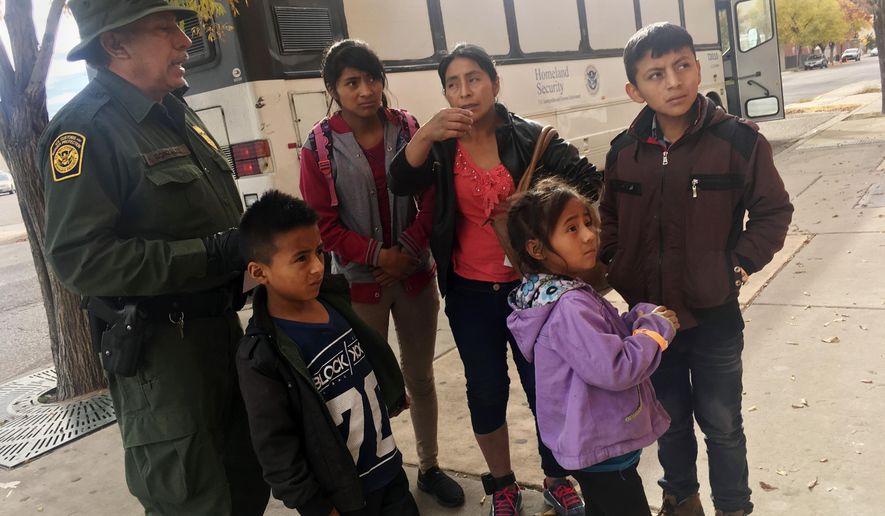A coalition of 20 Democratic attorneys general announced Monday they are suing to block the administration’s new rules that would allow immigrant families who are in the U.S. illegally to be detained while their deportation hearings are taking place.
The 19 states and the District of Columbia said they are responsible for ensuring the health and safety of children at detention facilities inside their boundaries, so they have standing to sue in order to protect their health.
And they said keeping juveniles in detention, even when it’s with their parents, can leave them with lasting trauma.
“We’re taking the Trump administration to court to protect children from the irreparable harm caused by unlawful and unnecessary detention,” said Xavier Becerra, California’s attorney general, who’s leading the lawsuit.
They are challenging the new rule announced last week by Homeland Security to replace a 1997 court settlement with new rules governing how immigrant children who are caught crossing the border illegally should be treated.
The new rules call for children who arrive with parents to be held together while their cases go through immigration courts.
SEE ALSO: Lindsey Graham: ‘Shame’ on states suing over new family detention rules
Opponents say that amounts to “indefinite detention.” Homeland Security says it’s more like seven weeks on average — enough time for a judge to rule whether the family has a valid asylum claim.
The new rules would replace the Flores Settlement which, under a 2015 update, ruled that the families needed to be released within 20 days — too short a time to complete their immigration cases, resulting in a de-facto “catch-and-release” policy.
The new rules also lay out standards for how the children should be treated, with guarantees for meals and standards for security and sanitary needs of the dorms that function as detention facilities under U.S. Immigration and Customs Enforcement.
Those are different than the Border Patrol stations, where photos earlier this year of overcrowded pens, separated by chain-link fencing, shocked the nation and spurred passage of a $4.6 billion emergency spending bill to alleviate conditions.
Those border stations were not meant to hold people longer than hours or a couple of days.
The ICE facilities, though, are designed for detention lasting weeks or months, with amenities such as soccer fields and flat-screen televisions, classrooms for the children, and medical screenings and care for everyone.
Critics say there’s no safe level of detention for children, and say alternatives such as releasing the families with intensive counseling could work just as well at getting them to show up for their deportation hearings.
“This case cuts to the core of who we are as a nation,” said New York Attorney General Letitia James, who joined the new legal challenge.
The brewing court battle will likely be over whether the new detention standards the Trump administration is proposing are good enough to replace the Flores settlement.
The administration counters that detaining families together was the standard practice up through 2015, before the judge’s ruling changed the understanding of the Flores agreement.
Indeed the Obama administration, responding to an earlier surge of migrant families, opened two new family detention centers, and the families were held until deportation. The average case took about 50 days. That succeeded in solving that previous surge, officials said.
The court ruling updating Flores changed that, President Trump says.
Now parents with children earn quick release into communities, with the hope that they’ll return when it’s time to be deported later. Single adults, though, are detained and deported quickly.
The government says that disparate treatment spurred the border surge that’s overwhelmed Homeland Security.
Since the Flores update in 2015, the number of immigrant families who are in the U.S. illegally has soared from less than 10% of Border Patrol apprehensions to more than 60% in May and June.
• Stephen Dinan can be reached at sdinan@washingtontimes.com.




Please read our comment policy before commenting.